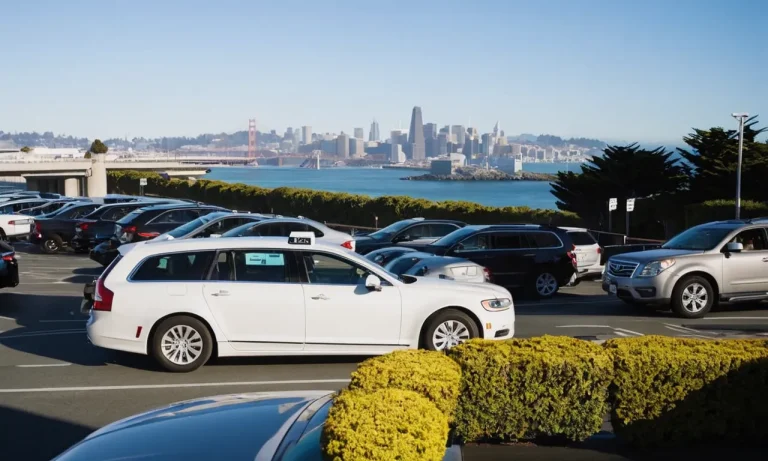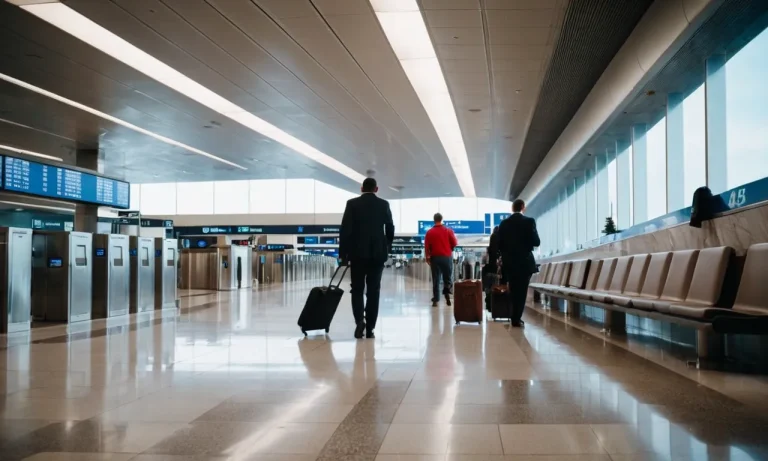Planning a long trip or multiple trips to the UK can get complicated when considering the visitor visa 180-day rule. Knowing exactly how the 180-day calculation works is crucial for avoiding issues.
If you’re wondering what the 180-day rule is, here’s a quick overview:
The 180-day rule for UK visitor visas limits people to spending no more than 180 days in the UK in any 12-month period. The 12-month period is calculated backward from each day spent in the country.
In this comprehensive guide, we will explain everything you need to know about the UK visitor visa 180-day rule.
You’ll learn how the 180 days are calculated, who the rule applies to, how to maximize time in the UK legally, and whether exceptions or extensions are available.
What is the 180 Day Rule?
The 180 Day Rule is an important aspect of the UK visitor visa requirements. It refers to the maximum duration of stay allowed for visitors in the UK within a 180-day period.
This rule determines how long an individual can stay in the country without overstaying their visa or violating immigration laws.
Understanding this rule is crucial for anyone planning to visit the UK for tourism, business, or other purposes.
Origin and Purpose of the Rule
The 180 Day Rule was implemented by the UK government as a way to regulate and monitor visitor entry and exit. It aims to strike a balance between facilitating tourism and ensuring national security.
By limiting the duration of stay within a specific timeframe, the rule helps prevent abuse of the visitor visa system and discourages individuals from using the visitor visa as a means to live or work in the UK illegally.
The rule also serves as a measure to manage the number of visitors in the country at any given time.
This allows the UK government to better allocate resources and maintain the integrity of their immigration system.
By implementing the 180 Day Rule, the UK can ensure that visitors are genuinely visiting for temporary purposes and not overstaying their welcome.
Who Does the 180 Day Rule Apply To?
The 180 Day Rule applies to all visitors who hold a standard visitor visa or who are eligible for visa-free entry to the UK.
This includes individuals coming for tourism, business meetings, academic conferences, medical treatment, or any other purpose that falls under the visitor visa category.
It is important to note that the 180 Day Rule applies to each visit separately.
This means that if an individual leaves the UK before the 180-day period ends, their subsequent visit will not be affected as long as they continue to comply with the rules and regulations of the visitor visa.
It is recommended that individuals planning to visit the UK familiarize themselves with the specific requirements and limitations of the 180 Day Rule to ensure a smooth and hassle-free visit.
How are the 180 Days Calculated?
Calculating the 180-day period for a UK Visitor Visa can be a bit tricky, but it is essential to ensure that you do not overstay your allowed time in the country. Here’s a complete guide on how the 180 days are calculated:
12 Month Rolling Period
The 180-day rule is based on a 12-month rolling period.
This means that you need to count back 12 months from any given date to determine your eligibility for entry into the UK.
For example, if you plan to enter the UK on July 1st, 2022, you would need to count back 12 months from that date, which would be July 1st, 2021.
From there, you can count forward 180 days to determine the last date you can stay in the UK.
Examples and Scenarios
Let’s take a look at a few examples to better understand how the 180-day rule works:
- If you entered the UK on January 1st, 2022, and stayed for 90 consecutive days, you would need to wait until July 1st, 2022, before you can re-enter the country.
- If you entered the UK on January 1st, 2022, and stayed for 60 days, left for 30 days, and then returned on April 1st, 2022, you would need to count back 12 months from April 1st, 2022, which would be April 1st, 2021.From there, you can count forward 180 days to determine the last date you can stay in the UK.
It’s important to note that the 180-day rule applies to any consecutive or non-consecutive days spent in the UK within the 12-month rolling period.
Maximizing Legal UK Visits Under the 180 Day Rule
Visiting the United Kingdom can be an exciting and enriching experience. However, it’s important to understand the rules and regulations surrounding the UK visitor visa, particularly the 180-day rule.
This rule states that visitors are allowed to stay in the UK for a maximum of 180 days in any given 12-month period.
To make the most of your visits to the UK while staying within the legal limits, it’s essential to plan your trips and stays strategically.
Planning Trips and Stays Strategically
To maximize your legal visits to the UK, it’s crucial to plan your trips and stays strategically.
One way to do this is by spacing out your visits throughout the 12-month period.
Instead of staying for a continuous 180 days, consider breaking up your visits into shorter stays.
This will allow you to spread out your time in the UK and make the most of each visit.
Another strategy is to plan your visits during specific events or seasons. The UK is known for its vibrant cultural festivals, sporting events, and historical landmarks.
By aligning your visits with these events, you can not only make your trips more enjoyable but also explore different parts of the country.
Considering Multiple Entry Short Stay Visas
For frequent travelers to the UK, it may be worth considering applying for multiple entry short stay visas. These visas allow you to enter the UK multiple times within a specified period.
By obtaining a multiple entry visa, you can make the most of your visits without having to apply for a new visa each time.
It’s important to note that the duration of each stay under a multiple entry visa is still subject to the 180-day rule.
However, having the flexibility to enter the UK multiple times can be advantageous for those who frequently travel for business or leisure purposes.
Getting the Most Out of Each Stay
When visiting the UK, make the most of each stay by immersing yourself in the local culture and exploring the attractions the country has to offer.
From world-renowned museums to stunning natural landscapes, the UK has something for everyone.
Consider creating a bucket list of places you want to visit and experiences you want to have during each stay.
Research local events, markets, and festivals happening during your visit to fully immerse yourself in the local culture.
Engage with the locals, try traditional cuisine, and indulge in unique experiences that will create lasting memories.
Remember, the 180-day rule is in place to ensure fair and legal visits to the UK.
By planning your trips strategically, considering multiple entry visas, and making the most of each stay, you can maximize your UK visits while staying within the legal limits.

Exceptions and Possible Extensions
Long Term Standard Visitor Visa
If you are planning to stay in the UK for an extended period of time, you may be eligible for a Long Term Standard Visitor Visa.
This visa allows you to stay in the UK for up to 2, 5, or 10 years, depending on your circumstances.
With this visa, you will be able to enter and exit the UK multiple times within the validity period, without having to worry about the 180-day rule.
It provides flexibility for those who frequently visit the UK for business or leisure purposes.
Youth Mobility Scheme
The Youth Mobility Scheme is a great option for young individuals aged between 18 and 30 who want to explore the UK for an extended period.
This visa allows you to live and work in the UK for up to 2 years, without any restrictions on the number of days you can stay.
It is a fantastic opportunity to experience the culture, travel around the country, and gain valuable work experience.
The Youth Mobility Scheme is available to citizens of specific countries, so make sure to check if you are eligible.
Compassionate and Medical Circumstances
In certain situations, such as compassionate or medical circumstances, you may be able to extend your stay in the UK beyond the 180-day limit.
If you can provide evidence of a valid reason for needing an extension, such as a family emergency or medical treatment, you can apply for an extension to your visitor visa.
The decision to grant an extension will be at the discretion of the UK Home Office, so it is important to provide strong supporting documentation to increase your chances of approval.
Consequences of Overstaying
Overstaying your UK visitor visa can have serious consequences. It is important to understand the potential implications before making any decisions. Here are some of the main consequences you may face:
Refusal of Entry at Border
If you overstay your visa, you may be refused entry into the UK on subsequent visits. The UK Border Force has the authority to deny entry to individuals who have a history of overstaying.
This can be a frustrating and disappointing experience, especially if you have important reasons for wanting to enter the country.
Curtailing Existing Visa
If you are caught overstaying your visitor visa, the Home Office has the power to curtail (cut short) your existing visa.
This means that you may be asked to leave the country immediately or within a specified period of time.
It is important to note that curtailment can have an impact on your immigration record and future visa applications.
Impacts on Future UK Visa Applications
Overstaying your visitor visa can have negative consequences when applying for future UK visas. The Home
Office takes immigration violations seriously and may view overstaying as an indication of non-compliance with immigration rules.
This can make it more difficult to obtain a visa in the future, as the Home Office may question your intentions and credibility.
It is important to remember that the consequences of overstaying can vary depending on individual circumstances.
If you find yourself in a situation where you have overstayed your visa, it is advisable to seek legal advice to understand the best course of action.
Other Key Rules and Restrictions
No Recourse to Public Funds
One important rule to keep in mind when applying for a UK Visitor Visa is the “no recourse to public funds” rule.
This means that as a visitor, you are not eligible to access public funds such as social welfare benefits or healthcare provided by the National Health Service (NHS).
It is essential to have enough financial means to support yourself during your stay in the UK without relying on public assistance.
No Work Allowed
Another important restriction to be aware of is that visitors on a UK Visitor Visa are not allowed to work or engage in any professional activities during their stay.
The visa is solely for the purpose of tourism, business meetings, or visiting friends and family.
Engaging in any form of paid or unpaid work is strictly prohibited and can result in serious consequences, including deportation and future visa rejections.
Maintenance Funds Requirement
When applying for a UK Visitor Visa, you will need to demonstrate that you have sufficient funds to cover your expenses during your stay.
The specific amount required may vary depending on the duration of your visit and the purpose of your trip.
The UK government sets guidelines for the minimum maintenance funds required, and it is crucial to meet these requirements to increase your chances of visa approval.
It’s important to note that the maintenance funds requirement is intended to ensure that visitors can support themselves financially during their stay and not become a burden on the UK’s public resources.
The funds can include cash, bank statements, or other financial documents that demonstrate your ability to cover your accommodation, transportation, and daily living expenses.
It is essential to provide accurate and up-to-date financial documentation to support your application and satisfy the immigration officer that you can sustain yourself financially during your stay in the UK.
Frequently Asked Questions
Popular FAQs on 180 Day Rule
1. What is the 180-day rule for UK visitor visas?
The 180-day rule refers to the maximum amount of time an individual can spend in the UK within a 12-month period on a visitor visa.
According to this rule, visitors are allowed to stay for a maximum of 180 days in any given 12-month period, starting from the day they first enter the country.
2. How is the 180-day period calculated?
The 180-day period is calculated by looking at the dates of entry and exit from the UK. It is important to note that the 180-day period is a rolling period, which means that it is not based on the calendar year.
For example, if you enter the UK on January 1st, your 180-day period will end on June 29th.
3. Can I stay in the UK for 180 consecutive days?
No, the 180-day rule does not allow for consecutive stays of 180 days. It is important to keep track of your entry and exit dates to ensure you do not exceed the allowed time limit. If you need to stay in the UK for longer than 180 days, you may need to explore other visa options.
4. What happens if I overstay my 180-day limit?
If you overstay your 180-day limit, you may face consequences such as a ban on reentry to the UK for a certain period of time. It is important to comply with the visa rules and regulations to avoid any legal issues.
5. Can I apply for an extension to my visitor visa if I need to stay longer?
Generally, visitor visas are not extendable. If you need to stay longer than the 180-day limit, you may need to consider other visa options such as a work visa or a study visa. It is important to consult with an immigration lawyer or an authorized representative to explore the best options for your situation.
6. Are there any exceptions to the 180-day rule?
There are certain exceptions to the 180-day rule, such as individuals who hold a different type of visa or those who are exempt from visa requirements. It is recommended to check the official UK government website or consult with an immigration lawyer for specific information about your circumstances.
7. How can I keep track of my stay in the UK?
It is essential to keep a record of your entry and exit dates from the UK to ensure you do not exceed the 180-day limit. You can use a calendar, a diary, or even set reminders on your phone to help you keep track of your stay.
It may also be helpful to consult with an immigration lawyer for guidance on maintaining compliance with the visa regulations.
Remember, the information provided here is for general guidance purposes only.
Conclusion
The UK visitor visa 180 day rule limits visits to the UK to 180 days in any 12 month period. Carefully planning trips, tracking days, and leveraging available visa options can help maximize legal UK visits.
While the 180 day limit creates some constraints, being aware of the rules and planning ahead makes it possible to spend quality time in the UK over multiple trips.
Seeking extensions where valid reasons apply can also provide more flexibility.
By understanding all aspects of the 180 day rule, you can avoid problems and make the most of your UK trips. This guide covers everything you need to know to properly follow the rule and enjoy hassle-free visits.






